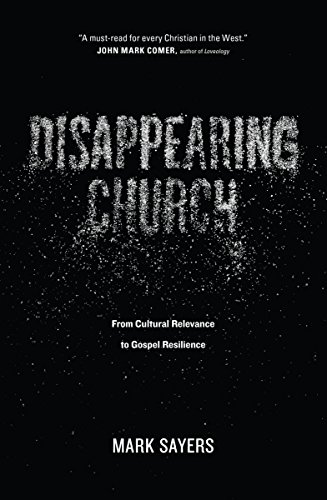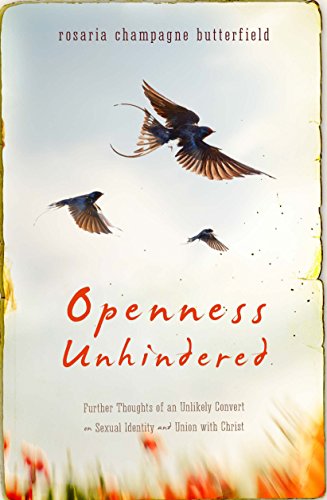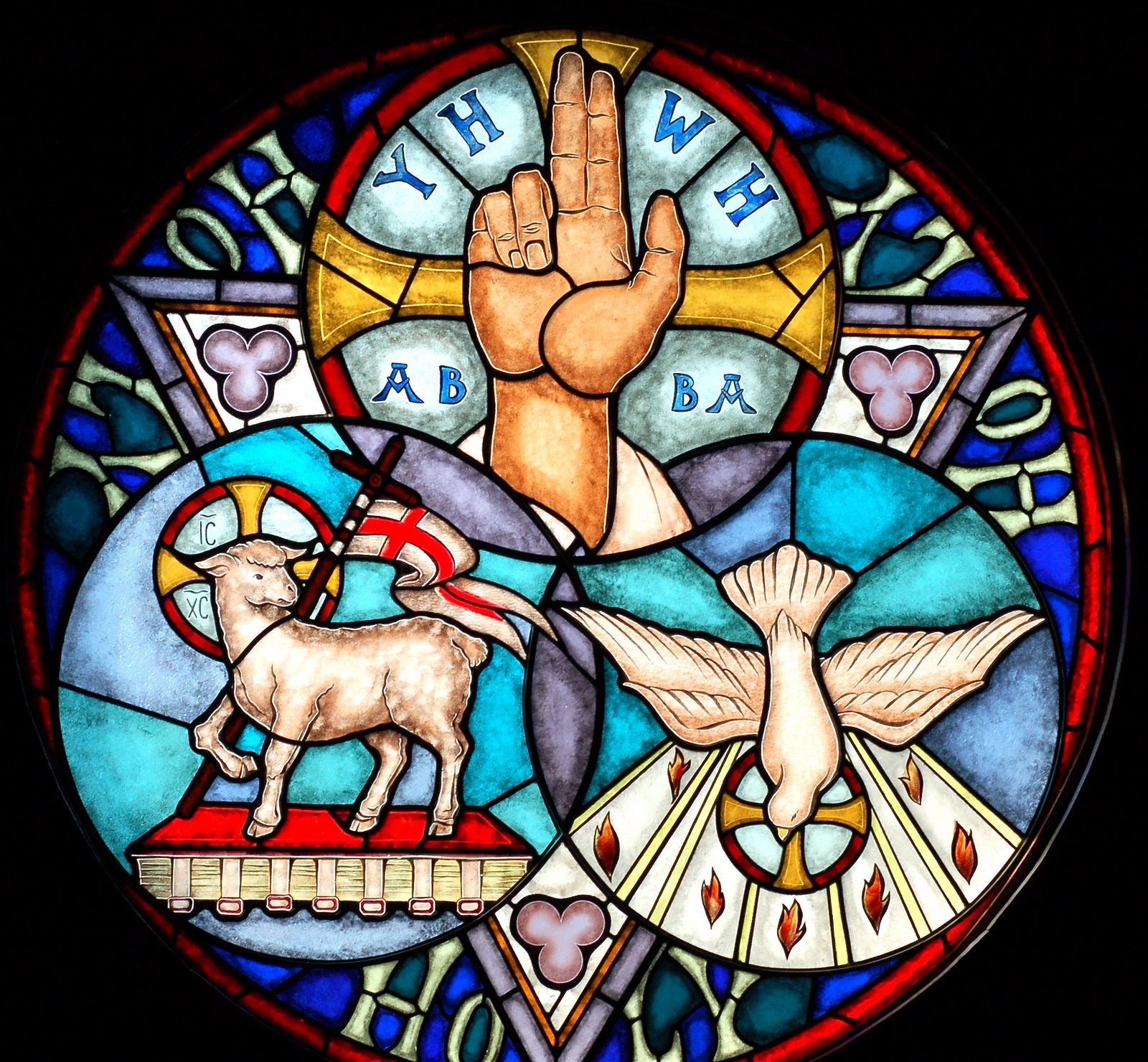The church is evaporating: Christianity is not overcome by siege, rather the end comes from within. The church is not destroyed; it is emptied of its essential truths, becomes a mere shadow and eventually disappears. Kind of like the fall of the Roman empire.
This kind of thing has happened before: In the early 20th century, in the face of pervasive modernism, the church was faced with the choice, do they maintain their core beliefs which embraced the miracle stories or do they nuance them? Modernism and miracles simply could not coexist peaceably. So if the church wanted to remain culturally relevant, if it wanted to remain a respected institution in society. Then what was previously thought to be historical fact, would now need to become myth literature. The archaic beliefs of resurrection, walking on water, and the virgin birth became a smile and wink kind of affair. “We all know the stories are not true, but the enduring principles remain.” This effort at cultural respectability resulted in the emptying of liberal churches, it didn’t take people long to realize that if the stories were false, there was no point in keeping up with all the traditions and commitments. The principles (which amount to “be nice”) you could take with you to the beach on the weekends. Secularism owes a great debt to liberal theology.
The church is the bad guy: Orthodox churches remained strong as Liberal churches haemorrhaged. But now according to Sayers, even orthodox churches are disappearing at alarming rates. Why? Churches today are imbibing a system of belief built upon post Christianity’s four fundamental truths: individualism, hedonism, consumerism and relativism. The basic pre-suppositions of the post Christian world are as follows:
- The highest good is individual freedom, personal happiness, & self definition.
- Any system of belief that restricts point one, needs to be reshaped or destroyed.
- Affirm all forms of self expression, intolerance is justified for any who don’t.
- Deconstruct existing institutions, traditions, morals and beliefs, accepting only those that fit you.
Those who once guarded the moral commands are the new enemy to be demonized and defined against; in their place the maverick, the rebel, and the releaser are the new elite.
Groups who continue to operate from a moral code during a revolution of release are tarred with the brush of being controllers. In these eras, including our contemporary revolution of release, anyone who holds to external religious truths, who submits to moral commands and traditions, will be automatically tarred as controllers, repressive and oppressive.
No church likes to “be the bad guy” but that’s what’s happened. Christianity is the “cultural straightjacket”, the impediment to freedom, pleasure and progress. Churches are desperately trying avoid falling under the disapproving glare of the broader culture. But is it possible to remain “cool” to thrive as a church working within the new system which is defined by individualism, hedonism, consumerism and relativism? — In short, Sayers says no, but the problem is, countless churches are willing to try, not just because of external pressure but, because they have employed individualism, hedonism, consumerism and relativism into their practices and belief.
The church growth movement as well as the health and wealth gospel are built upon these very frameworks. “Its all about you church” is the mainstream regardless of theology. Church is almost exclusively a consumeristic enterprise now. Sales pitches to get crowds, slick marketing campaigns, and the embrace of “on to the next shiny thing” mentality within our churches betray what we are really believing. In addition legions of churches are quietly tweaking their views on sexuality to be more embracing of today’s mood. They are moving from a particularist view of Jesus to a universalist one with soft quiet steps. Whatever the public doesn’t want to talk about, the church is silent on. The authority of Scripture is a very nuanced conversation now. The church has become just another fragrance of selfishness in a culture of selfishness. The church as yet has not embraced full throated hedonism, but certainly half hearted-hedonism, we gently and regularly caress the sins of the mind, taking comfort in their promise to protect us from the palpable sting of consequence.
These efforts to keep the church relevant, says Sayers, will ultimately result in the church being swallowed up and digested into the broader culture.
The world in which we live: I’ve inserted an extended quote into this review as I think it gives us a very good glimpse of the western world of which we are at part.
Rorty felt that many philosophers, in particular the Europeans, got too worked up over the fact that there was no meaning in the world. Instead of mourning the loss of meaning and heroically staring down nothingness, Rorty advocated, in the words of Peter Augustine Lawler, an “easygoing, sentimental, ‘nice’ culture.” Instead of religion, instead of philosophy, instead of trying to work it all out, Rorty advocates pragmatism, that we should simply accept our mortality and go about the business of creating a pleasant life for ourselves.
This was what Allan Bloom called “Nihilism without the abyss.” The late Richard John Neuhaus wrote that Rorty’s secularist thought essentially stated, “Make it up as you go along; take ironic delight in the truth that there is no truth; there is no home that answers to our homelessness; definitely (but light-heartedly!) throw the final vocabulary that is your life in the face of nothingness. And if your neighbour or some inner curiosity persists in asking about the meaning of it all, simply change the subject.”
This is a culture in which we believe that ultimately, life is meaningless, but we are insulated from the full horror of such a belief by the distracting and anesthetizing qualities of our public culture. Our existential angst is drowned out by cooking shows, discount airfares, smartphones, and celebrity gossip. But what of those who still cling to desires for something more, a yearning for a transcendent belief, centred on more than just a tolerant society?
Rorty does not advocate that those who believe should be expunged from society altogether, rather such people need to keep their spiritual and metaphysical longings to themselves, or be joshed out of their beliefs. See them as nuts, roll your eyes at them, and if they continue in their belief, walk away. Let government, education, and corporations, led by educated, nice, sophisticated individuals, reeducate them or at least their children into the “easygoing atheism” of the beautiful world. The hope of our culture is that dissenting believers will eventually be reeducated as all minorities and distinctions dissolve into a sea of Western, materialist sophisticates. The beautiful, public sphere of our culture is the architecture of our disbelief. It soothes us, gives us vain hope, and distracts us, all while our private world becomes more fragile.
What’s the church to do? Sayers suggestions were loosely scattered over the book, and I am not sure how helpful they are. “Become a creative minority”, he says, become a “extremophile” or “retreat and return”(?). He calls us to “revisit the ancient paths”, he warns that “crowds are overrated”, and encourages us to “view church involvement as a spiritual discipline not a commodity”. He laments that “too much choice hasn’t been helpful for Christianity”. All valid point’s but these conclusions lacked depth and direction. However, one of the greatest nuggets in this book is Sayers observation that freedom comes at the expense of community. The more free a person becomes the more disconnected he also becomes. This trade off has led to the collapse of marriage, the fracturing of the family, the fraying of the social bond, the partisanship of politics at a time when national interest demands something larger, the loss of trust in public institutions, the buildup of debt whose burden will fall on future generations, and the epidemic spread of loneliness. In short the western world is beautiful but it is also a mess!
This presents an opportunity for the Christian. People who are shorn of collective responsibility, traditional moral guidance, and binding relationships, are finding freedom a scary minefield of risk. The more freely and intensely people live the more they lament at how difficult life is. Our culture is a beautiful apocalypse. Everything falls apart while looking beautiful. We as a culture know these things, yet we seem collectively powerless to move beyond them. I think, that it is in these moments of longing and vulnerability that a Christian can speak. Freedom is not so free after all, it’s very expensive, and the return on investment is not so great, maybe there is a better way, a completely counter cultural way that involves total disobedience to the overriding principle of our day. The highest good is actually not individual freedom, personal happiness, & self definition it is something else entirely.




